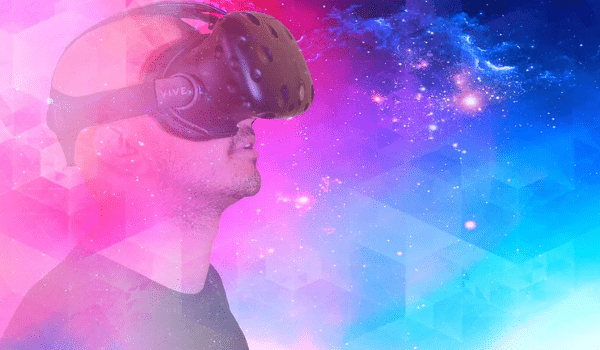Metaverse has long existed as a far-flung utopian idea rather than an achievable reality. Writer Neal Stephenson coined the term ‘metaverse’ in 1992 in his science fiction novel, Snow Crash.
Simply put, a metaverse is a virtual-reality space through which people can interact with a computer-generated environment and engage with others as well. It promises an immersive experience, and includes virtual reality, augmented reality, mixed reality, extended reality and so on.
In the not-so-distant future, metaverse will not only enable people to connect with each other through technology, but also go one step ahead and make their experiences feel as real as possible. The virtual reality aspect of Metaverse is going to provide more opportunities to organisations to create new ways of learning for their employees. By introducing virtual reality, companies will be able to create simulations, where the employees get first-hand experience and knowledge about different subjects and skills. Teaching methods will change quickly, to adapt to the new technology and expand in more creative ways that weren’t possible till now.
“I don’t see a direct application of learning through metaverse”
Rajesh Nair, executive president and CHRO, Polycab India
To what extent is metaverse going to change learning in organisations?
Gamification of learning programmes: Amit Das, director-HR and CHRO, Bennett Coleman and Co, says that, “Metaverse includes any digital experience on the internet that is persistent, immersive, three-dimensional and virtual. If we look around us, some examples of metaverse in employee assessment already exist, such as game-based assessments, or neuroscience-backed gamified competency assessments”.
He goes on to explain how while users play an immersive game, the system collects thousands of data points and gives a detailed report about users’ competencies and areas of development. “Some companies have already started virtual tours of their campuses as part of the New Hire Orientation,” reveals Das.
And this is not all, the ways in which companies create programmes for their employees have already started veering towards gamification, which will prove easier to work with.
“We also have gamified learning programmes, where learners participate in a workplace situation and make multiple decisions based on the data provided. Their decisions are evaluated, and they are given feedback on how to improve their decision making,” enunciates Das.
In addition to entertaining programmes, companies will take help from simulations to prepare their employees for different kinds of situations.
“Metaverse Avatars performing skill drills will be common,” points out Das. “If we want to learn fire safety, we can just create a virtual simulation, and our avatars will learn how to act in case of fire by virtually using sand, water, or Co2 cans to control different types of fire. If we want to learn public-speaking skills, we can create a virtual panel where learners can practise their elevator pitches. One company may build virtual production systems, another may build HR function, and a third may build the AR/VR hardware. A platform will allow all these systems to come together in the form of a meta organisation, where different learners can practise handling of different situations. This will allow much better learning because of integration of interdisciplinary learning,” he elucidates.
“We also have gamified learning programmes, where learners participate in a workplace situation and make multiple decisions based on the data provided”
Amit Das, director-HR and CHRO, Bennett Coleman and Co
“In summary, an exciting world of metaverse awaits learners and creators of learning experience. For a metaverse-enabled learning ecosystem to thrive, the chasm of growth will need to be crossed by making these systems at price points that justify the return on investment or ROI,” He concludes.
Faster and more realistic learning: Minakshi Arora, former CHRO, Trident Group India, is of the opinion that metaverse will be helpful in providing full exposure of knowledge to the person who wants to learn a particular topic.
“It will minimise the time duration for learning a skill as companies use virtual reality to simplify subject matter,” asserts Arora. “It’ll also give a more realistic purview to the employees so they can see the situation in real time and learn skills by experience without having to wait long,” she adds.
Many of the greatest possible solutions that metaverse could provide reside in the distant future. Even as the technology becomes affordable, it isn’t going to be adapted swiftly.
Rajesh Nair, executive president and CHRO, Polycab India, says, “I don’t think we’re at a place where we can capitalise on metaverse and utilise it in a meaningful manner for learning modes at our organisations yet.”
“Metaverse will minimise the time duration for learning a skill”
Minakshi Arora, former CHRO, Trident Group India
“I don’t see a direct application of learning through metaverse. Of course, it could help people take courses in subjects they want to learn, but since organisations have a more robust learning management system (LMS) in place already, they don’t need to use metaverse as of now,” feels Nair.
Metaverse is still in its initial stages of usage, and it’ll be a long time before it can be utilised daily in organisations. With any technology that purports to simplify work, there are obviously disadvantages embedded in its features. Only time will tell how essential metaverse will become in the everyday practices of organisations across the world. However, the fact that its services are already being discussed in the larger context of learning and development gives us a hint of its importance in the future.




